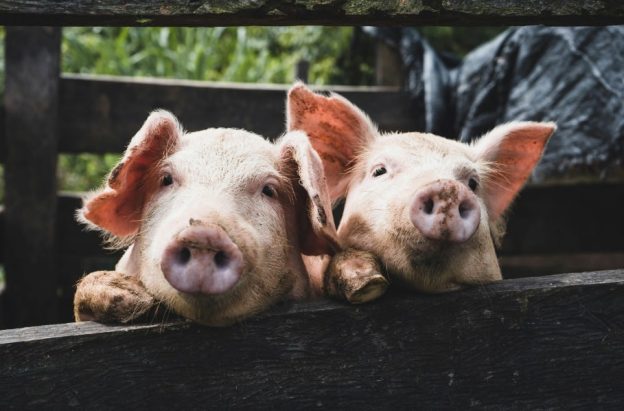The health and wellbeing of farm animals has been in the headlines recently for a number of reasons. There are concerns that farmers failing to manage animals properly and allowing them to live in unsanitary conditions could lead to huge problems for humans. We want to have a closer look here to explore the issue and why maximising animal health is so important.
Zoonosis
The most alarming issue lately is a pig factory farm in Northern Ireland had an animal suffering from human flu. The illness does not normally pass from humans to animals. So, it has a lot of people worrying about the threat of zoonosis, particularly diseases that can pass from animals to humans and vice versa.
There is particular worry about the case in Northern Ireland because it is the first record of reverse-zoonosis in the UK. There have been reports of cases in other parts of the world, including the US, but until now we hadn’t had any. Now that we have, there is focus on what to do to ensure we don’t see another pandemic.
Causes
A lot of attention is now on the factors that could cause zoonosis and reverse-zoonosis. Most focus is on the housing conditions. They can have a massive impact on animal health and wellbeing.
One of the most important things to look at in terms of housing is the amount of stress it causes to the animals. If conditions are cramped, dirty, and not sufficiently ventilated, it is incredibly stressful. As a result, it can seriously affect the immune system of animals. In turn, it increases the risk of suffering from illnesses, potentially even things like human flu that don’t normally transfer to animals.
Bad housing conditions are also harmful because they can create a breeding ground for disease. Illnesses are more likely to spread if animals are crammed together. It forces more contact and means bacteria, viruses and parasites can spread easily. There is a much higher risk of illnesses then transferring to humans.
Another issue is the handling of animals themselves. For a disease to spread from a human to an animal, there had to have been some form of contact. The contact also means there is a chance of reverse-zoonosis. Therefore, farmers should be incredibly careful with how they handle animals and the practices they use. The goal should be to protect workers and enhance animal health.
Finally, the over-use of antibiotics is an issue. It can lead to resistance to the drugs, meaning parasites, bacteria, and viruses would survive treatment. That is a massive problem as it could result in massive animal losses.
Pandemic
The biggest fear is the risk of another pandemic like covid. It is a famous example of zoonosis, with experts reporting the origin to be bats. It then spread to humans and became one of the worst pandemics in human history.
There is real concern here. WHO reports there are over 200 known types of zoonosis. They can spread to humans due to direct contact, in food, in water, or in the environment. Risks are higher if we don’t manage animals effectively, focusing on the conditions, their wellbeing, and practices.
Do you need some help with animal health?
JS Hubbuck Ltd can work with clients to ensure they keep animals in safe, comfortable conditions. We have some really useful products here, including feeds, supplements, tools, and more. In addition, with our help you can arrange to order custom housing, feeding systems, and much more.
So, if you want to improve animal health to reduce the risk of illnesses, including zoonosis and reverse-zoonosis, have a look at how you handle and keep animals. You can speak to us if you need to order anything.

